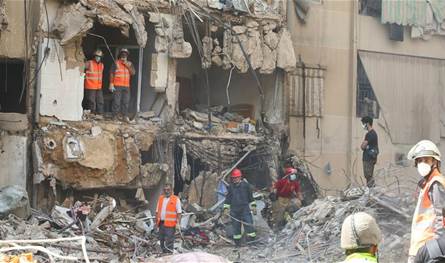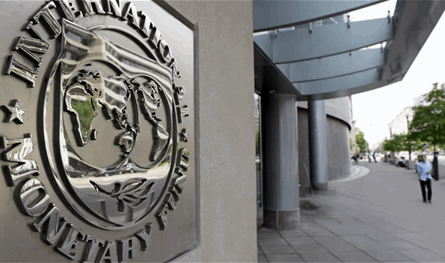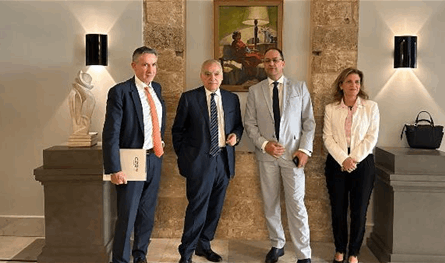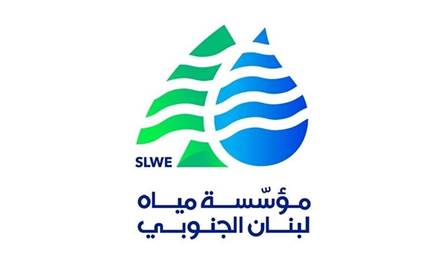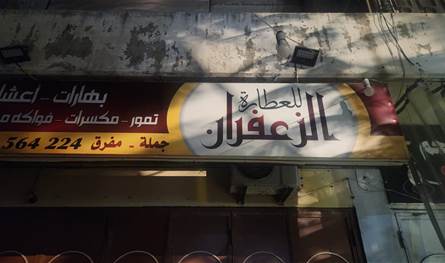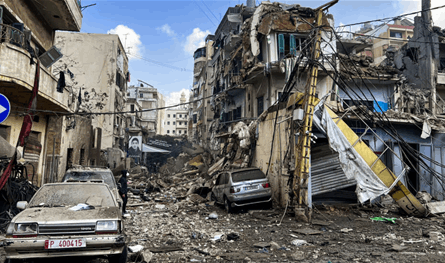
The Minister of Finance, Yassin Jaber, informed the Arab Development Fund of the Fund’s readiness to contribute an amount of up to 120 million US dollars, to the foundational fund launched by the International Bank for Reconstruction, with a ceiling of up to one billion dollars.
Jaber and members of the Lebanese delegation continued their meetings with senior officials at the bank and with representatives from the US Treasury and Arab and Islamic funds.
Minister Jaber participated in a meeting of Arab finance ministers and central banks, with the head of the International Monetary Fund and her assistants, in which she spoke about the economic conditions in the world. It was an intervention by Jaber in which he focused on the progress made at the legislative and governmental level and the measures that pave the way for signing a program between Lebanon and the Fund, opening before it horizons of economic and financial recovery, and providing appropriate climates for Lebanon to emerge from its crisis that has accumulated over the years. Recent years, during which the Israeli attacks have become more severe, have deprived Lebanon of the stability that all growth requires.
Jaber held a meeting with the IFC Foundation, affiliated with the World Bank, which is concerned with providing financing to the private sector through soft loans to revitalize it. Jaber described its results as important, especially after Lebanon approved the partnership law between the public and private sectors, which would support the trend towards developing this partnership. Jaber was informed by the Foundation’s officials of its intention to play an active role in support of this Lebanese government approach and its readiness to take the initiative to activate its role in a meaningful way.
Minister Jaber also met with the Minister of International Cooperation and Development, who had recently visited Lebanon, and views were exchanged regarding the economic conditions in Lebanon, especially since his country had a role in preparing for the oil law approved by Parliament. He also discussed the possibility of benefiting from Norwegian expertise in this field, as his country has a very active oil industry.
Jaber and the Minister of Economy and Trade held a meeting with Atlantic Council officials and another with representatives from the US Treasury, during which they focused on the reforms undertaken by Lebanon, the paths of cooperation with the World Bank and the International Monetary Fund, and the extent of the Atlantic Council’s desire to provide possible support, and the results of the meetings were positive.
In addition, practical meetings are continuing between Jaber and the delegation of the Ministry of Finance with representatives of the Fund within the framework of completing the steps that were previously agreed upon in the meetings that took place in Beirut, and to develop visions for the next stage.
Minister Jaber participated in a meeting organized by the Executive Director of the Arab Region at the IMF and another at the invitation of the Arab Cooperation Group, which included all participating Arab finance ministers, heads of Arab and Islamic funds, and representatives of OPEC.
The dinner held by the head of the International College Alumni Association from Lebanon, Dr. Walid Shalhoub, was attended by a crowd of Lebanese graduates who hold assignments in international institutions and who work in the fields of medicine and engineering, where Minister Jaber presented to them the Lebanese reality in all its aspects, praising the active role they play in supporting Lebanon.



